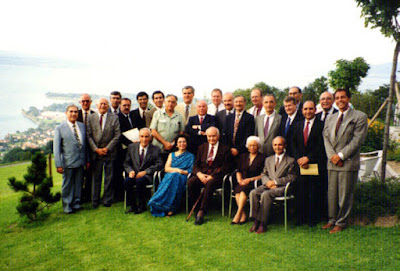 To receive Huququ'lláh, Bahá'u'lláh brought into being one
of the great institutions of the Faith, the Trusteeship of Huququ'lláh.
To receive Huququ'lláh, Bahá'u'lláh brought into being one
of the great institutions of the Faith, the Trusteeship of Huququ'lláh.
The first to be honoured with being appointed Trustee of
Huququ'lláh was Jinab-i-Shah Muhammad from Manshad, Yazd, who eventually
received from the Blessed Beauty the title of Aminu'l-Bayan (Trustee of the
Bayan). Aminu'l-Bayan had embraced the Faith in its early years and had the
bounty of entering the presence of Bahá'u'lláh in Baghdad. The fire of love
kindled in his heart made him impatient to offer his services to the Threshold
of his Beloved, and this undertaking he followed until the last moment of his
life, surrendering all material belongings in the path of service. Encompassed
by hardship, danger and lack of means, this trusted servant of Bahá'u'lláh, in
journey after journey, would carry the friends' donations of Huququ'lláh and
their petitions to the Sacred Threshold and, in return, bring them news and
Tablets from the Blessed Perfection.
















